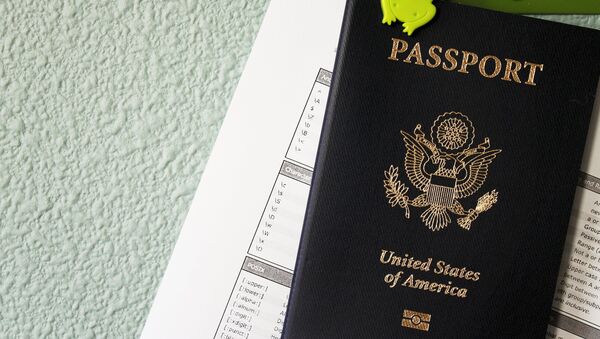A public opinion poll released in March showed that more than 1 in 4 Americans would consider leaving their country if Donald Trump won the presidency in November. These numbers were reflected in statistics from the US Treasury Department, which showed that within the first three months of 2016, 1,158 Americans had renounced their citizenship, an increase of 1,700% from the Bush-era.
The second quarter of 2016 shows that pattern continuing. New information released by the US Internal Revenue Service revealed that another 508 Americans have turned in their passports, bringing the total to 1,666.
This is slightly below the 1,795 who renounced during the same period last year.
In 2015, 4,279 American renounced their citizenship, breaking the record for the third consecutive year.
Part of the uptick is said to be due to the passage of the Foreign Account Tax Compliance Act, a 2010 law that requires between 2-7 million nonresident citizens to pay increased taxes.
But it’s also impossible to ignore political frustration in the United States. While Trump may be a deeply divisive figure, Democratic presidential nominee Hillary Clinton is almost equally disliked by her detractors.
"In Campaign 2016, the American people have shown little stomach for more foreign wars," wrote investigative reporter Robert Parry for Consortiumnews.com, adding, "the Republican candidates who advocated neoconservative warmongering crashed and burned, losing to Donald Trump."
"Only Hillary Clinton is carrying the neocon banner proudly in the general election, advocating a US ‘regime change’ invasion of Syria, – dressed up as 'no-fly zones' and 'safe zones' – while she also cheers on more hostilities toward nuclear-armed Russia.'
With few appealing presidential options, it seems that a growing number of Americans are willing to fork over the $2,350, up from $450 in 2014, required to renounce their citizenship.
The US government is estimated to have profited almost $4 million in renunciation fees this year.




